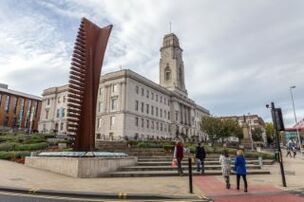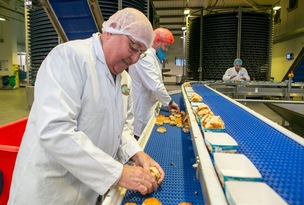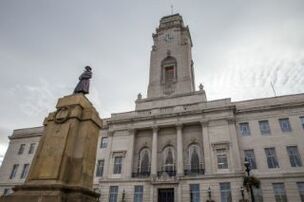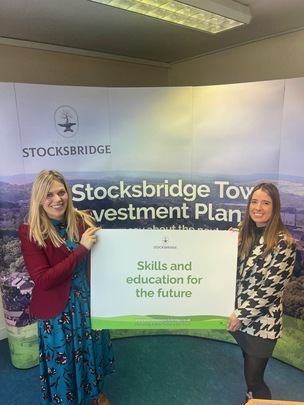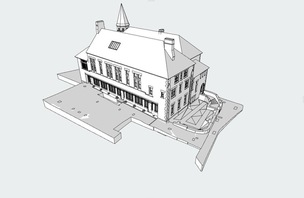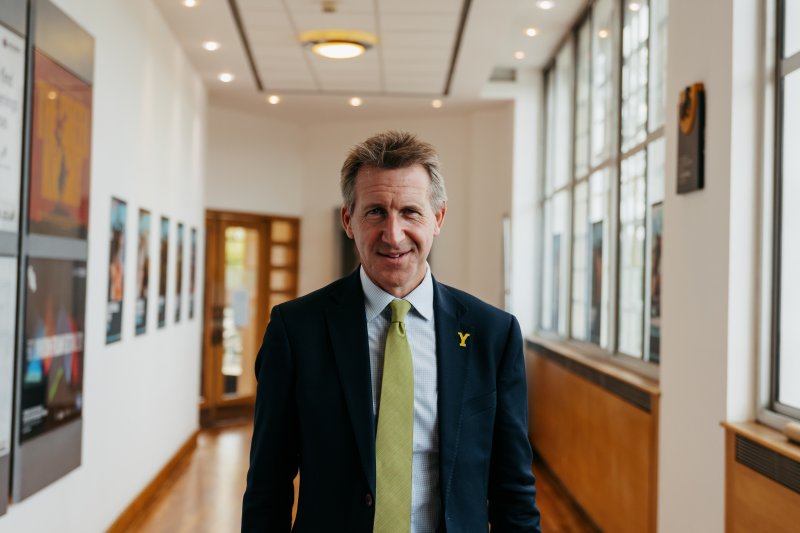COUNCIL tax is set to rise by more than 4.49 per cent it was announced this week - just days after the revelation Barnsley has suffered bigger cuts in public spending than anywhere else in the country.
A stark warning has been issued by Barnsley Council that ‘considerable financial uncertainty’ looms beyond the coming financial year, having revealed its budget proposals which will be considered by its ruling cabinet members next week.
If approved by cabinet on Wednesday, and by all 63 councillors at their meeting on February 28, the 4.49 per cent rise will come into effect in just eight weeks’ time on April 1. Council tax bills will increase by more than 4.49 per cent, as that figure includes only the council's component of the council tax charge - it does not include the contribution paid to the police and fire services or parish council contributions.
The 4.49 per cent council tax increase includes 2.99 per cent to help fund general services - such as bin collections, roads and area councils - and 1.5 per cent which will be ringfenced for adult social care.
Since 2010 the council has made savings of an estimated £107m, including £5.8m which is to be made during 2019-20.
Jobs across the council have also been slashed by nearly 40 per cent as a knock-on effect, with 36 more potential job losses expected in 2019-20.
The hike comes after a study, carried out by the research organisation Centre for Cities, revealed the council’s day-to-day spending has reduced by 41 per cent since 2009 the heaviest drop in the country - which equates to an average of £688 per person in the town.
Council leader Sir Steve Houghton said: “Despite the considerable financial pressures we’re under, we’ve made tremendous progress over the last two years on our journey to improve, grow and change to become a modern, sustainable council and we’ve plans in place to maintain this momentum.
“Government funding reductions have forced us to make tough and unpopular decisions as well as changing the way we deliver our services.
“One of the hardest decisions we have to make is the decision to raise council tax because we fully appreciate the impact that this has on our residents.
“We haven’t taken this decision lightly and we’ve explored a number of options to keep council tax levels as low as possible.
“It’s important to emphasise that the funding we raise from council tax helps us to provide residents with vital services but only contributes an element of the overall funding we need in order to deliver these services across the borough.
“It’s a tough position to be in, but our focus has always been on improving services for all of our residents.
“When we look beyond 2020, we’re faced with considerable financial uncertainty. The outlook for local government funding beyond 2020 remains unclear and the EU exit proposals bring further uncertainty to overall public finances.
“It’s not going to be easy but what we can do is be vigilant, prepare for every financial scenario and manage our resources with the long-term future in mind.”
In 2017 the council presented a three-year financial plan which provided a financial platform up to 2020. This plan, it says, has helped prioritise resources in line with corporate priorities and to deliver ‘improvement, growth and future sustainability’.
However, as the council enters the final year of that term, there remains significant uncertainty beyond 2020 and the proposals acknowledge that the next 12 months will be ‘critical’ in planning for the future.
Despite widespread job losses and the council tax rise, ‘facilitating growth’ has been outlined as a priority in 2019/20, which will see the delivery of the town centre’s regeneration programme, including the start of phase two of The Glass Works, the opening of a new library and the construction of Market Gate bridge.
Diana Terris, chief executive of Barnsley Council, added: “We know there are significant challenges ahead, but we’ll prepare for each eventuality.
“As an organisation, we’ll embrace change, be brave, innovative and prioritise our resources in those areas that provide long-term impact and sustainable outcomes for a brighter future, a better Barnsley.”

